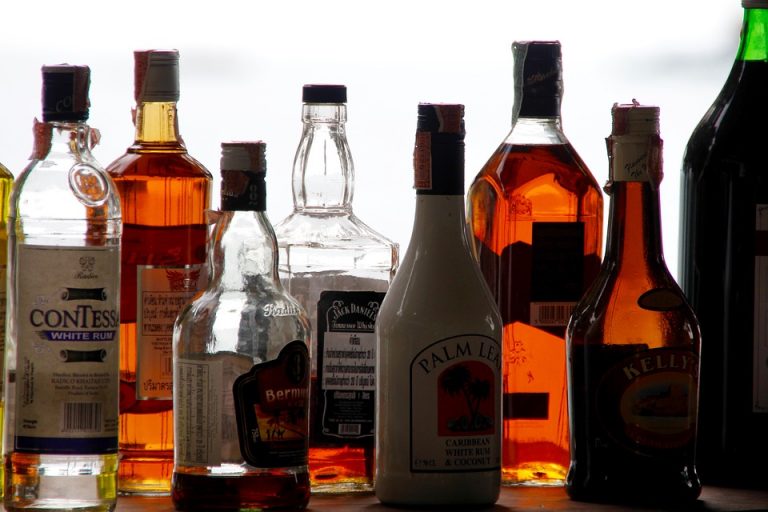
What do a doctor, a lawyer, and a teacher have in common?
Aside from sounding like the start of a bar joke, people with these three working professional roles are “more likely to drink alcohol regularly than manual workers.”
According to a study, at least four out of five of people in the U.K. who work in managerial and professional roles drink alcohol in the previous week, compared to only half of receptionists and others considered as routine and manual workers.
Healthcare experts cautioned that these findings suggest that the “wine o’clock” culture can endanger the health of heavy drinkers.
Steve Clarke, an alcohol addiction specialist at the Priory Group’s hospital in Woking, Surrey, warned that there had been an alarming increase among middle-class professionals who drink alcohol to “de-stress.” Clarke said that these middle-class professionals drink too much alcohol to “self-medicate” due to work stress.
He added that middle-class drinkers tend to ignore government health warnings because of the belief that they won’t get drunk as much. Clarke also noted that these drinkers could also afford increases in the price of alcoholic drinks.
The report on the U.K.’s drinking habits determined that a whopping 57 percent of individuals aged 16 or older had consumed alcohol in the last seven days. (Related: A beer or two – but no more: Study finds drinking more than 10g per day compromises cognitive function.)
At least 57.8 percent of adults are from England, which had the highest number of regular drinkers, unlike 53.5 percent in Scotland and 50 percent in Wales, per the Office for National Statistics. The survey also revealed that alcohol consumption was connected to income and age, which increased as people aged and earned more. Only 46.5 percent of workers who earned under £10,000 consumed alcohol in the last seven days.
The power of the elements: Discover Colloidal Silver Mouthwash with quality, natural ingredients like Sangre de Drago sap, black walnut hulls, menthol crystals and more. Zero artificial sweeteners, colors or alcohol. Learn more at the Health Ranger Store and help support this news site.
In stark contrast, the lifestyle survey determined that 69.5 percent of people who earn between £30,000 to £40,000 were classed as regular drinkers. Among those who earned £40,000 and above, 78.9 percent shared that they drank alcohol in the last week.
Baby boomers, which includes individuals born between 1946 to 1964, were the most likely to be drinking alcohol at higher or increasing risk levels. Baby boomers consumed the highest amount of alcohol in a week.
People aged 55 to 64 had the highest levels of drinking in a week, with 35 percent drinking over the recommended 14 units weekly.
The “Facebook generation,” or people aged 16 to 24, were the least likely to drink out of any age group.
Those who drank over three or four drinks on their heaviest day decreased from 20 to 15 percent for all age groups. Younger individuals were most likely to be among the 10.4 million who didn’t drink. Out of the 16 to 24-year-olds, those who didn’t drink at all increased from 19 percent in 2005 to 22.8 percent in 2017.
Even though those older than 65 had the highest levels of abstinence, they were also the sole group to exhibit a reversing trend, from 29.4 percent in 2005 down to 24.2 percent in 2017.
Dr. Tony Rao, who specializes in substance misuse in older people at the Royal College of Psychiatrists, warned that the general trend of hazardous drinking in people aged 45 and older has increased since 2005.
Dr. Rao cautioned that experts must look into the reason why more older people are drinking. He added that this drinking problem could worsen, at least until the affordability and availability of alcohol are addressed.
In the U.K., the number of patients who died because of alcohol has skyrocketed by over 10 percent in the last 10 years. Alcoholic liver disease caused four-fifths of the deaths, along with accidental overdoses, mental health problems, pancreatitis, and other reasons.
Natural ways to de-stress
If you’re always stressed because of work problems, try some of these natural ways to de-stress instead of binge-drinking:
- Drink green tea – Green tea is a soothing drink, and it has theanine, an amino acid that gives the drink its unique flavor. Theanine also promotes relaxation.
- Meditate – Meditation can help you relax. It can even lower your heart rate and blood pressure. Sit in a comfortable place, close your eyes, relax, and focus on one thing, like your breathing, or an object. Meditating for even 10 minutes daily can help you de-stress.
- Listen to music – Soothing music can help you relax, and songs with slow tempos can induce a calm state of mind. Listen to music in the car or whenever you’re feeling particularly stressed.
- Exercise regularly – Exercise can help increase your endorphin levels and reduce stress. Exercise for at least 20 minutes daily to enjoy these benefits.
You can learn more about other findings on the negative side effects of alcohol consumption at Addiction.
Sources include:
DailyMail.co.uk
WomensHealthMag
